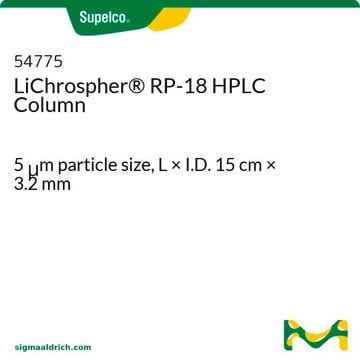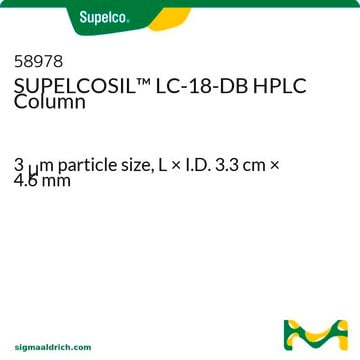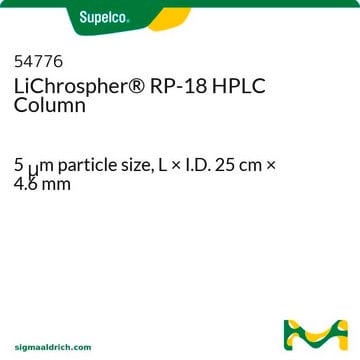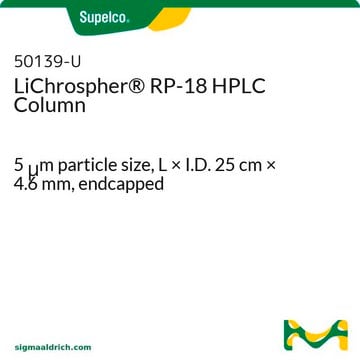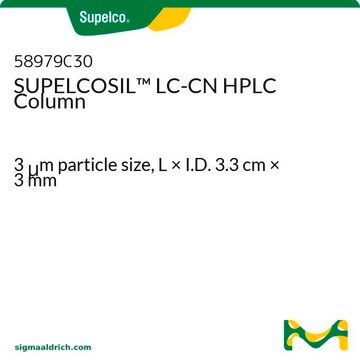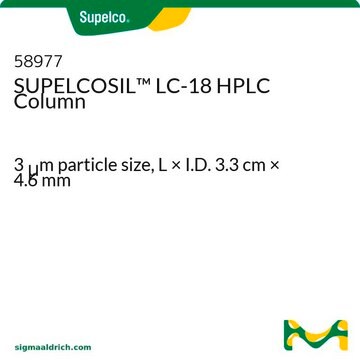58978C30
SUPELCOSIL™ LC-18-DB (3 µm) HPLC Columns
L × I.D. 3.3 cm × 3 mm, HPLC Column
About This Item
Empfohlene Produkte
product name
SUPELCOSIL™ LC-18-DB HPLC-Säule, 3 μm particle size, L × I.D. 3.3 cm × 3 mm
Materialien
stainless steel column
Qualitätsniveau
Agentur
suitable for USP L1
Produktlinie
SUPELCOSIL™
Leistungsmerkmale
endcapped
Hersteller/Markenname
SUPELCOSIL™
Verpackung
1 ea of
Kennzeichnungsgrad
11.0% Carbon loading
Parameter
0-70 °C temperature
400 bar pressure (5801 psi)
Methode(n)
HPLC: suitable
L × ID
3.3 cm × 3 mm
Oberflächenbereich
170 m2/g
Oberflächendeckung
surface coverage 3.1 μmol/m2
Matrix
silica gel, spherical particle platform
fully porous particle
Aktive Matrixgruppe
C18 (octadecyl) phase
Partikelgröße
3 μm
Porengröße
120 Å
Betriebs-pH-Wert
2-7.5
Anwendung(en)
food and beverages
Trenntechnik
reversed phase
Suchen Sie nach ähnlichen Produkten? Aufrufen Leitfaden zum Produktvergleich
Verwandte Kategorien
Allgemeine Beschreibung
Rechtliche Hinweise
Ähnliches Produkt
Hier finden Sie alle aktuellen Versionen:
Besitzen Sie dieses Produkt bereits?
In der Dokumentenbibliothek finden Sie die Dokumentation zu den Produkten, die Sie kürzlich erworben haben.
Unser Team von Wissenschaftlern verfügt über Erfahrung in allen Forschungsbereichen einschließlich Life Science, Materialwissenschaften, chemischer Synthese, Chromatographie, Analytik und vielen mehr..
Setzen Sie sich mit dem technischen Dienst in Verbindung.